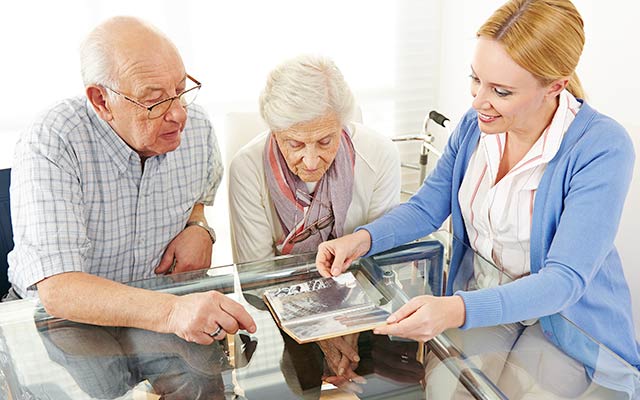By A.J. Griffiths-Jones

Having heard of a few expat acquaintances returning to the UK due to health problems recently, it started me thinking about where to turn in Turkiye when the time comes that either myself or my husband can no longer look after ourselves or each other.
With no close family or children to turn to, and our friends all being of a similar age, it’s an issue that I believe we should start considering. Would we stay in Turkiye or is there a more ‘care-friendly’ country for an expat to retire to?
In terms of illness, there is no doubt that Turkish hospitals offer top-class medical treatment and facilities, but in many cases, especially if you have a pre-existing condition or prefer a private clinic rather than state hospital, only a percentage of treatment is covered by SGK insurance.
There is also the worry that should a foreigner suffer a stroke or brain haemorrhage over here, rehabilitation therapy can often only be provided by Turkish-speaking staff, which for many of us older expats would be rather difficult.
Nowadays people are living much longer than their ancestors, increasing the pensioners’ population which naturally puts a strain on resources and due to the cultural beliefs here, of looking after elderly family members at home, there aren’t many options for foreigners on their own.
Having researched this topic, I found one care home in Kusadasi, but there was no information in English, so the website was hard to navigate.
A second search came up with a nursing home outside Istanbul which provides foreign retirees with a furnished room, three meals a day, cleaning services and wi-fi for between 1500 and 2,000 Euros per month.
For many expats living in Turkiye on a pension, that would most likely mean selling their property and using the money to live on. All very well if you don’t have too many years in front of you, or have property to sell, but there are both pros and cons to this situation.
Firstly, after setting up your direct debit and moving into the home, you wouldn’t need to worry about paying bills, cooking or going shopping. There would, most likely, be other expats within the community in a similar situation to yourself and plenty of group activities to keep you occupied.
However, on the downside, you would most likely still encounter language barriers, need to divest yourself of personal furniture and most of your belongings before moving into the retirement home, and inevitably move away from your local area and the people you know.

Many expats, at the onset of serious illness, decide to return to the UK to be looked after by relatives, but there are many conditions that are not physical, such as dementia, and the person concerned might not realise they need help unless a GP or friend intervenes.
Luckily, most of us live in a caring society, where neighbours look out for one another and lend a helping hand when needed, but when health issues are ongoing it can be a serious problem if the correct care cannot be sourced.
Those in more rural areas may already have found themselves relying on friends to take them to hospital appointments or grocery shopping, but as we are all ageing it will inevitably become harder to find those with the ability to help.
This is a somewhat delicate subject, perhaps one that many of us prefer to think of as ‘sometime in the distant future’, but it is one that expats will all have to face sooner or later.
I believe that planning wisely for the unexpected is the best we can do, think about how and where we want to be living in 20 or so years and talk things through with those closest to us.
You may find like-minded friends that will want to sell up and join you in a retirement home, and with a bit of luck it will be an absolute hoot!
